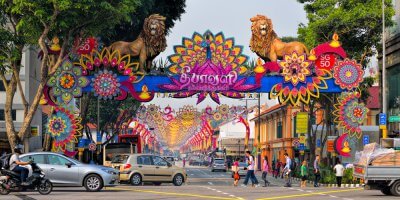
Businesses in the UK might want to move to Southeast Asia given the favorable economic and technology environment. Source: Shutterstock
Southeast Asia might welcome more entrepreneurs, before and after Brexit
BILLIONAIRE investor Jim Rogers (James Beeland Rogers, Jr) moved to Singapore back in 2007. Billionaire and Dyson Founder Jim Dyson (Sir James Dyson) moved to Singapore this year — with his company in tow.
Between 2007 and 2019, many investors, entrepreneurs, and businesses have moved to Singapore, lock, stock, and barrel.
With Brexit on the horizon, it is expected that Singapore and other Southeast Asian countries will welcome a wave of economic immigrants — many of whom will be making the move in order to accelerate their digital transformation agenda.
To understand the trend better, Tech Wire Asia spoke to Henley & Partners Managing Partner — Southeast Asia Dominic Volek who said that “although Brexit doesn’t particularly make London or the UK less attractive to entrepreneurs, it would certainly demand that the government provide additional support to businesses looking to innovate.”
Volek specializes in helping ultra-high-net-worth individuals strategically think about immigration in order to support their business, investment, and other needs.
Heading the firm’s Southeast Asia business, Volek believes that Singapore is one of the most attractive destinations for anyone looking to participate in the region’s upcoming economic and digital boom.
“Singapore has a very conducive business environment. It’s attractive from a regulatory perspective, it’s very quick and easy to set up a company, open a corporate bank account, and there’s a lot of good talents and skills, even the tax structure is very suitable.”
Further, the country’s low corruption rate and simple, investor-friendly laws just add to Singapore’s attractiveness as a destination for businesses looking for a new home in Southeast Asia.
Just recently, the fact that the World Economic Forum’s latest Global Competitiveness Index ranking put Singapore ahead of the US (ranked 2nd) and eight spots ahead of the UK (ranked 9th) is just icing on the cake.
An important point that Volek mentioned about entrepreneurs and companies looking to shift their base to Southeast Asia is the fact that Singapore boasts of a phenomenally capable and skilled pool of talent.
Dyson, who recently moved to Singapore, also cited the availability of technology talent as one of the key reasons for moving the company’s headquarters away from the UK.
Truth be told, Singapore is an incredibly exciting destination, but Volek admits that it is sometimes a tad too expensive for new entrepreneurs and businesses —
“Rent can be quite high in Singapore; Since demand is high, hiring talent in some fields (such as technology) can be expensive — as can be importing talent into Singapore from overseas. Living costs are also high in comparison to neighboring countries in Southeast Asia.”
Fortunately, Singapore isn’t the only option. Depending on the needs of the individual and their business or investment interests, Volek helps clients choose between Singapore, Malaysia, and Thailand — all of whom have interesting immigration programs on offer to attract entrepreneurs and investors in technology and other industries.
The World Economic Forum’s Global Competitive Index might place Hong Kong (ranked 3rd) just two places below Singapore, but the political climate in the country has impacted its economic attractiveness, especially as an investment destination for entrepreneurs and businesses looking to move overseas.
To be fair, Hong Kong welcomes investors as well as businesses that are keen to leverage technology, innovate proactively, and use the country as a gateway to markets in Southeast Asia, the Asia Pacific, and even China. If the country manages to convince investors of its stability, it might just get back on the radar of migrants.
Volek, whose clients appreciate the strategic thinking his firm does in terms of immigration planning, believes that the next couple of years will be exciting — with Brexit on the anvil, but also with the changes brought by technology and new and emerging markets.
Ultimately, moving to Southeast Asia for firms in the UK has several advantages.
Volek emphasizes that not everyone will leave the UK, and that many will consider moving to the UK to gain from its role as a mature financial hub and economic powerhouse — however, for those looking to hire innovative talent in droves or accelerate their journey with technology, Singapore and the rest of Southeast Asia will offer exciting opportunities.
READ MORE
- Safer Automation: How Sophic and Firmus Succeeded in Malaysia with MDEC’s Support
- Privilege granted, not gained: Intelligent authorization for enhanced infrastructure productivity
- Low-Code produces the Proof-of-Possibilities
- New Wearables Enable Staff to Work Faster and Safer
- Experts weigh in on Oracle’s departure from adland


